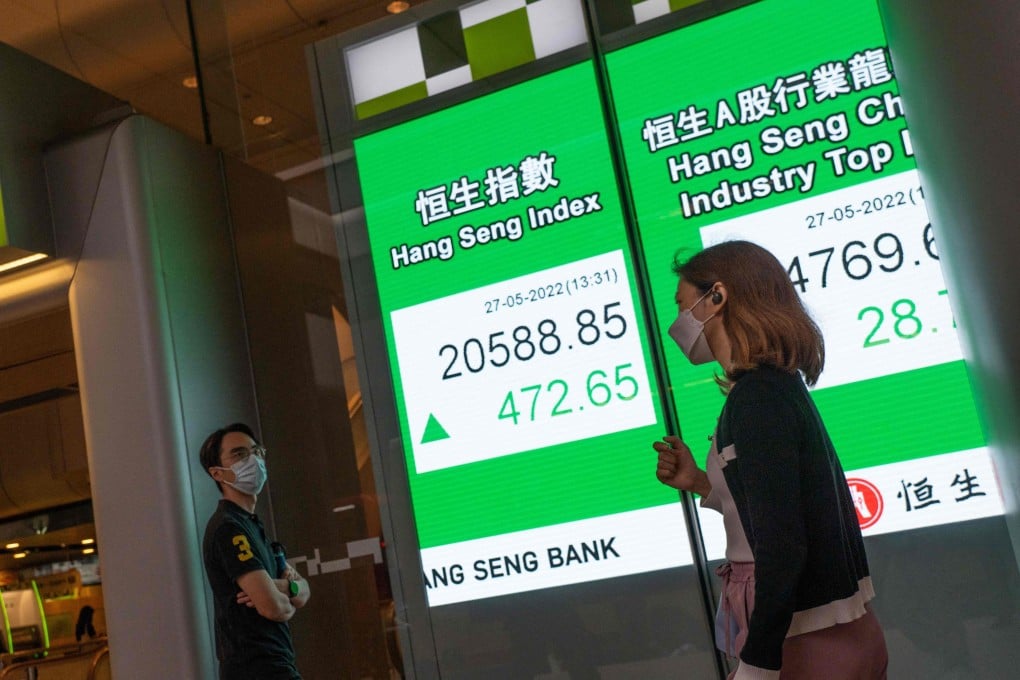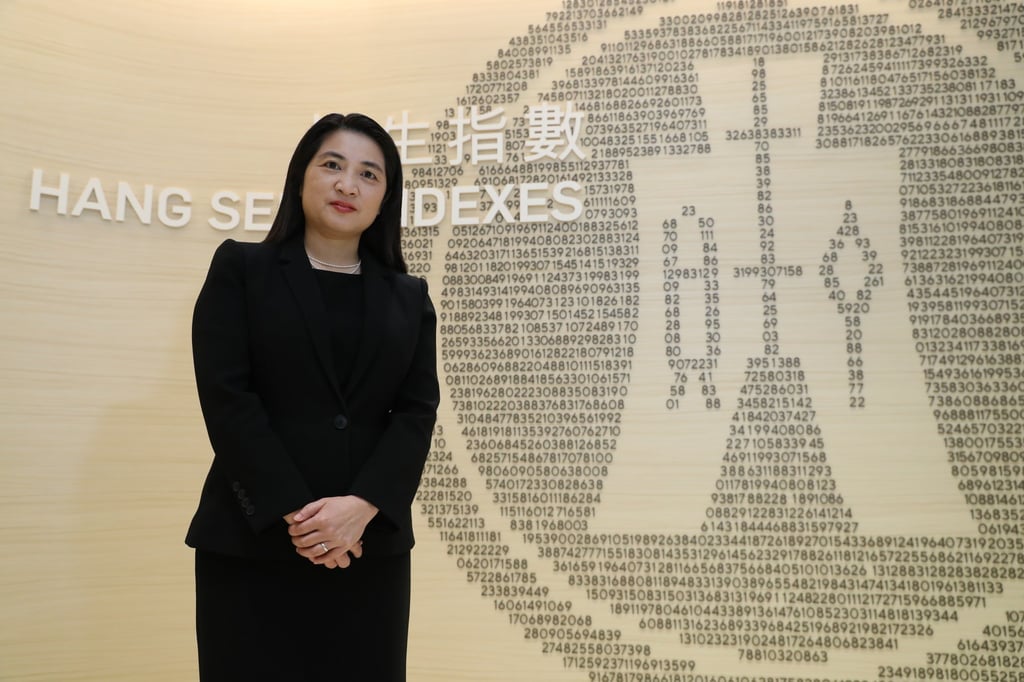Hong Kong gets new climate-linked stock market tracker amid big fund inflows, policy controversy
- Hang Seng Indexes introduces a new index to track 209 companies and their efforts to slow global warming
- Move comes before a new rule in Hong Kong requiring money managers to disclose greenhouse gas emissions data from November this year

The Hang Seng Climate Change 1.5ºC Target Index will track the 209 of the 311 component members in the city’s index of mid- and large-capitalisation investible stocks, according to compiler Hang Seng Indexes Company. The index stood at 6,418.22 points on Friday, or 7 per cent above its 6,000-point base in September 2015. It outpaced the investible gauge by 0.9 percentage point over the period.

“We want to provide a tool for investors who want to invest in a portfolio in Hong Kong, while at the same time ensure their investments are allocated to companies that seek to reduce carbon emissions,” chief executive Anita Mo said in a media briefing.
The top five constituent stocks of the new index are Tencent Holdings, HSBC, AIA Group, Meituan and Alibaba Group Holding, the owner of this newspaper. Their individual weight in the index will be based on progress in reaching their carbon reduction targets.
Hang Seng Indexes is confident the new tool can help promote the city as a fundraising hub for green products, Mo added. The Chinese climate funds market grew by 149 per cent in 2021 to US$46.7 billion last year, according to data compiled by Morningstar. The US market ranked third with US$31 billion.
